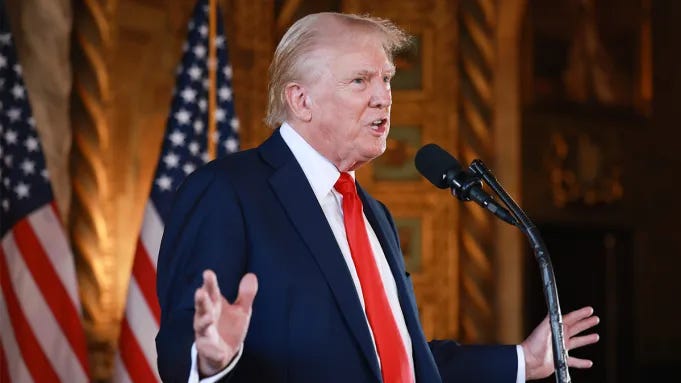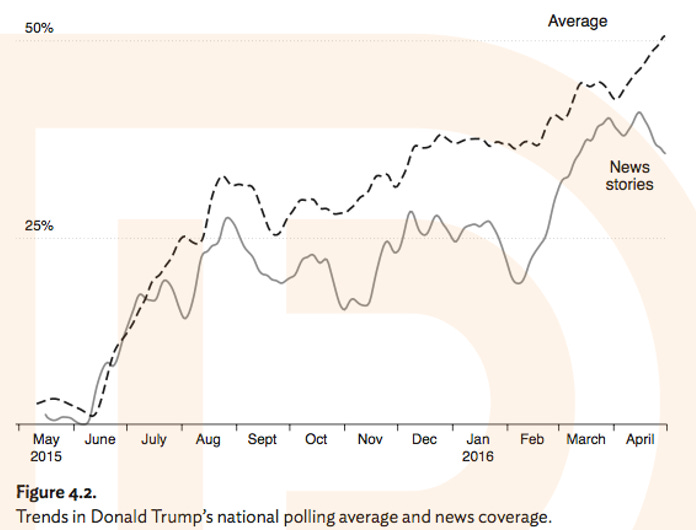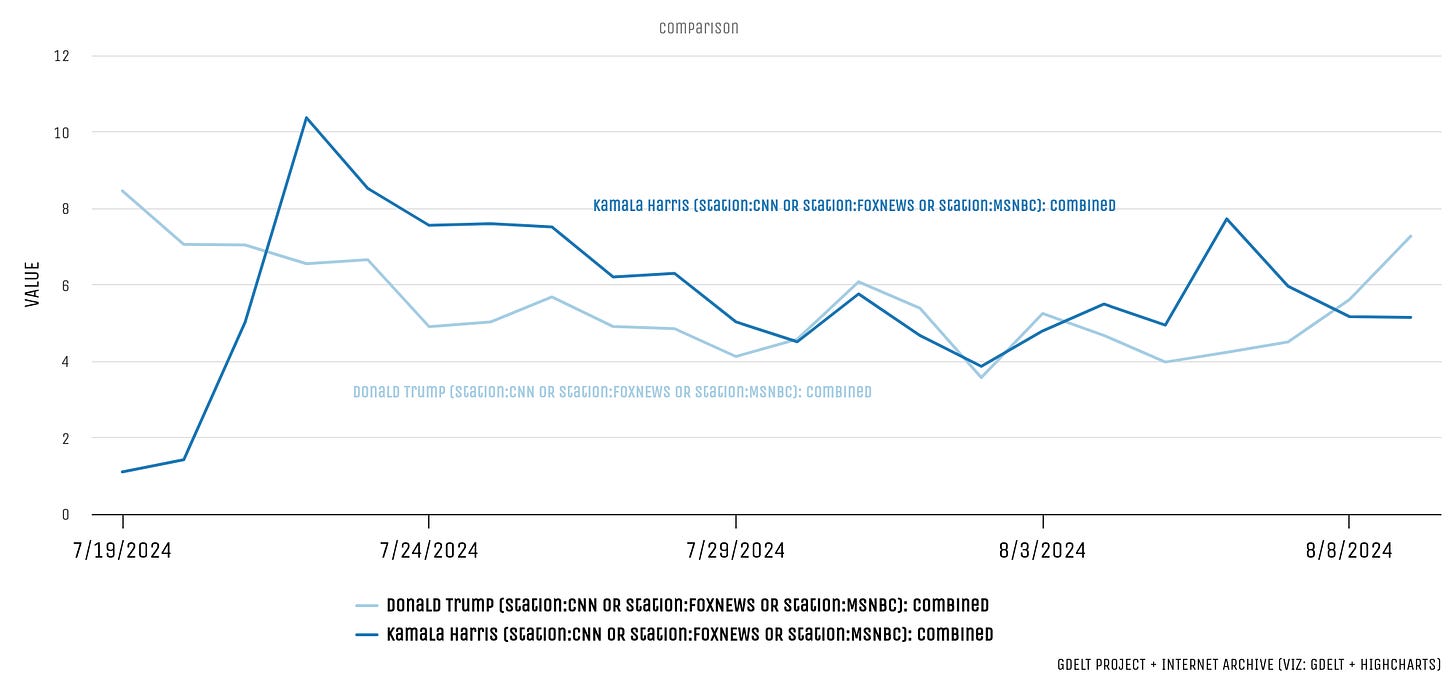Trump dominates coverage; does that help him?
Getting lots of attention for subpar performances when everyone already knows you may not be the best thing
If you haven’t seen Lawrence O’Donnell’s screed about the press corps’ slavish, uncritical attention to Donald Trump’s press conference last week it’s really worth a watch. He’s quite correct that the media treats Trump differently from other candidates, largely letting him say whatever he wants for hours, and it’s a pattern we’ve seen since 2015. The question, though, is whether that actually helps him at this point.
Even by Trump’s standards, it was not a good press conference. It was filled with the usual unsubstantiated boasts and outright lies about crowd size and other things, comparisons of his January 6th rally to MLK’s “I Have a Dream” speech, bizarre claims that Joe Biden not running for president is somehow unconstitutional, a story about crashing in a helicopter with a short Black politician from San Francisco when in fact it was a tall Black politician from Los Angeles, and more. Even his basic insults were off their game. And no, he was not directly challenged on any of these statements during the press conference, although a number of prominent media organizations, including the New York Times, ran rapid fact-checking and debunked much of what he was saying. But it was still rapt attention on essentially all the major networks. If you were watching TV at that time it was hard to miss.
Meanwhile, Kamala Harris gave a rally speech the same day that got relatively little national media attention. She hasn’t given a lengthy press conference yet, although she did answer a few questions from reporters the other day, nearly all of which turned out to be about Donald Trump.
In their 2019 book Identity Crisis, John Sides, Michael Tesler, and Lynn Vavreck examined the relationship between the media’s attention on Trump and his success in elections in 2016. And basically the relationship depended on the election cycle. Greater media attention definitely helped Trump in the primaries and caucuses in 2016:
And the reasons seem pretty obvious. Trump was the most famous candidate in those contests, and the only way another candidate might defeat him was by becoming better know to voters. As long as Trump was garnering the bulk of media attention, he was squelching other candidates’ voices.
But it was different in the general election that year, where party identification matters and he was running against just one other candidate who was also very famous person. As the authors write, “Apart from the period around the party conventions, the correlation between Trump’s advantage in news coverage and his standing in the polls was negative: the more Trump dominated the news, the worse he did in the polls.” And this is with good reason; yes, he dominated news coverage, but a lot of the coverage was quite negative and didn’t impress an audience that contained more than just one party. And a lot of that was his own doing.
We can assume a similar dynamic in 2024. Trump completely dominated media coverage during the nomination contest, even during presidential debates in which he did not participate. Not that his re-nomination was much in doubt, but the media coverage limited what other candidates could realistically hope to do.
It’s different in the general election against just one candidate. Just being on TV when you already have 100% name recognition isn’t necessarily going to bring new voters to your side, especially when a lot of the coverage is about how you lied and said incoherent things.
The important caveat here is that Kamala Harris, while obviously well known, does not have the decades of name recognition that her Democratic predecessors, Joe Biden and Hillary Clinton, did. And some of her reputation has the invariably cartoonish tinge of the vice presidency associated with it. She is presently embarked on an effort to reintroduce herself to American voters. At least so far, it’s working quite well; in the past few weeks, her unfavorables have dropped by five points while her favorables have jumped by six. Her aggressive campaign style and relentless optimism — combined with no longer being seen as associated with Joe Biden — seem to be working for her. And the convention hasn’t even happened yet. But to the extent the news media are focusing on Trump’s rambling news conferences, it’s limiting just how many people see her campaign.
One other thing of note here: Since the end of the GOP convention, media coverage of Harris and Trump — across Fox, MSNBC, and CNN — is roughly equal. Still, the fact that she has had so many more campaign appearances than he has in recent weeks suggests that equal coverage is still a built in advantage for him.








Lawrence O'Donnell's segment was outstanding. Thanks for helping to reframe the political conversation and showing how negligent the press coverage has been.
In 2016, the media coverage got him elected. In 2024, any extended exposure to him speaking will be good for VP Harris. He is untethered to reality and that’s exactly how he sounds every time he speaks. In his mind, it is still 2016 and any publicity is good publicity. I don’t think that’s the case anymore. Everyone is exhausted with him. Arguably, even some of his less rabid supporters are exhausted with him.